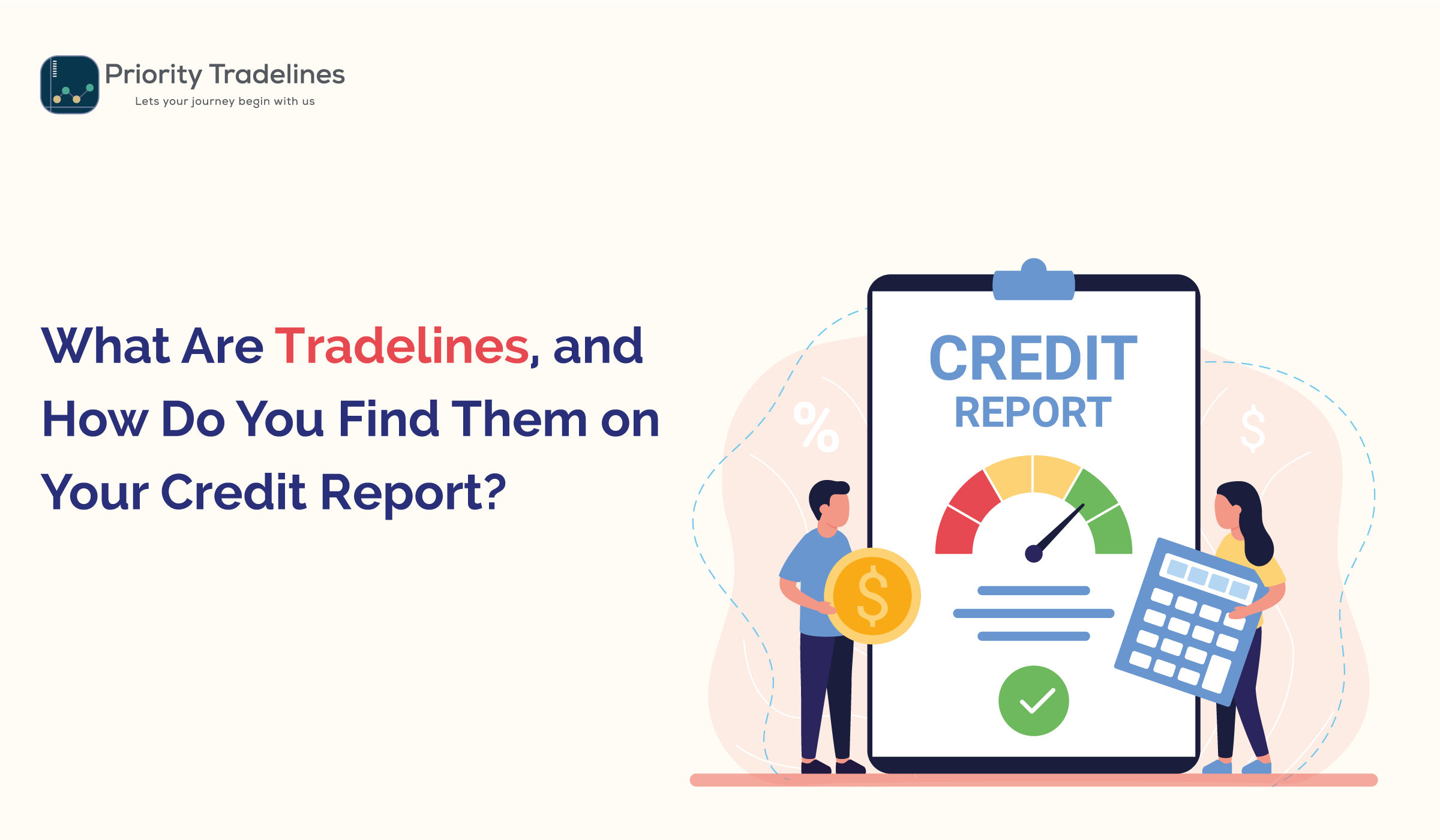Tradelines refer to the credit accounts listed on your credit report. They provide a detailed record of your credit history, including information about your credit cards, loans, and other credit-related accounts. Each tradeline includes data such as the type of account, the date it was opened, your credit limit or loan amount, the current balance, and your payment history
What are tradelines?
A tradeline is essentially a record of your credit history. It's like a report card for your borrowing and repayment behavior. Each credit account you have, whether it's a credit card, loan, or even a utility bill, has its tradeline on your credit report.
Why are Tradelines Important?
Your credit score is a three-digit number that lenders use to assess your creditworthiness. It's based on a variety of factors, including your payment history, credit utilization, and length of credit history. Tradelines play a big role in your credit score, as they make up about 35% of it.
How to Find Your Tradelines
Three main credit bureaus collect and maintain credit information: Experian, Equifax, and TransUnion. You can get a free copy of your credit report from each of these bureaus once a year. Once you have your reports, you can find your tradelines listed under a section called "Accounts" or "Credit History."
Each tradeline will include the following information:
-
The name of the creditor (the bank or company that issued the credit)
-
The type of account (credit card, loan, etc.)
-
The account number
-
The date the account was opened
-
The credit limit (for credit cards) or original loan amount
-
Your current balance
-
Your payment history
-
Whether the account is open, closed, or charged off
How to Use Your Tradelines to Improve Your Credit Score
There are a few things you can do to use your tradelines to your advantage and improve your credit score:
-
Make sure your payments are always on time. This is the single most important factor in your credit score.
-
Keep your credit utilization ratio low. This is the amount of credit you're using compared to your credit limit. Ideally, you want to keep this below 30%.
-
Have a mix of credit types. Having a variety of tradelines, such as credit cards, loans, and installment accounts, shows lenders that you can handle different types of credit.
-
Don't close old accounts. The longer your credit history, the better. So, even if you don't use an account anymore, it's usually best to keep it open.
How to find tradelines on your credit report:
-
Obtain your credit report: You are entitled to a free credit report annually from each of the major credit bureaus: Equifax, Experian, and TransUnion. You can request these reports through AnnualCreditReport.com.
-
Review your credit Report: Once you have your credit report, carefully review each section. Tradelines are usually listed in the "Accounts" or "Credit History" section.
-
Identify tradelines: Look for entries that represent your credit accounts. Common types of tradelines include credit cards, mortgages, auto loans, personal loans, and student loans.
-
Examine each tradeline: For each tradeline, review the details provided, such as the account type, date opened, credit limit or loan amount, current balance, and payment history.
-
Check for accuracy: Ensure that the information on each tradeline is accurate. Look for any errors, discrepancies, or unauthorized accounts. If you find any inaccuracies, you can dispute them with the respective credit bureau.
It's important to regularly monitor your credit report to stay informed about your credit accounts and to detect any signs of identity theft or reporting errors. Your credit report plays a crucial role in determining your creditworthiness, affecting your ability to secure loans and credit on favorable terms.



